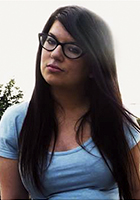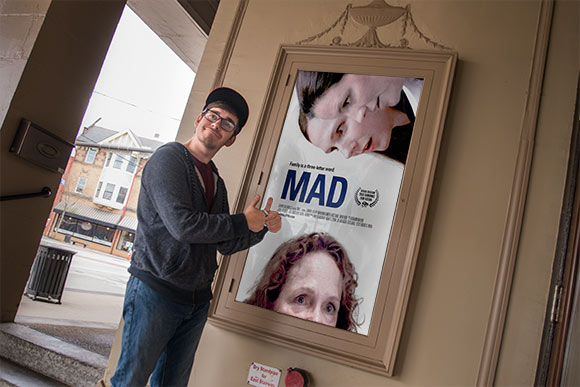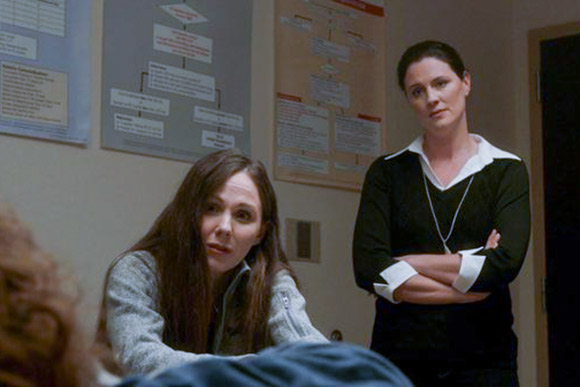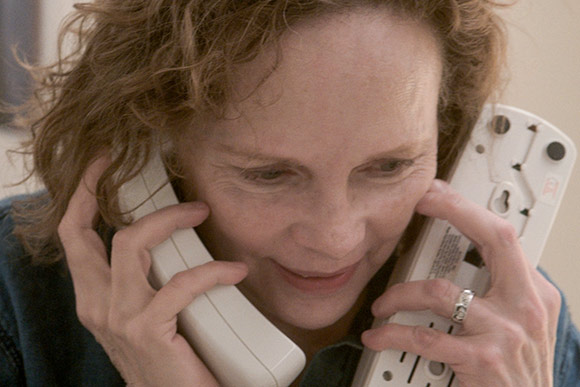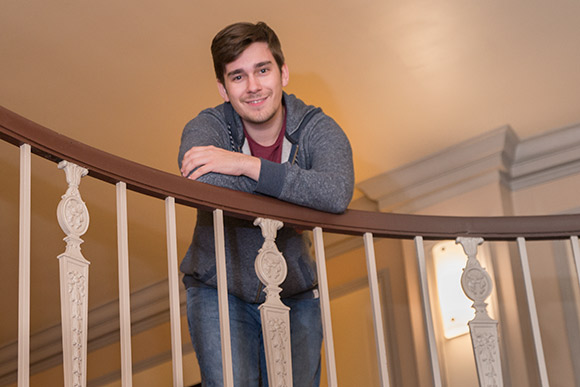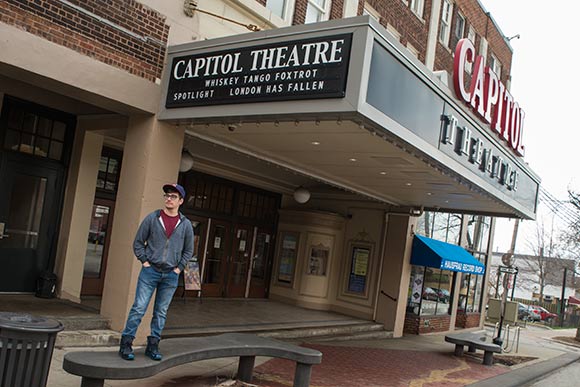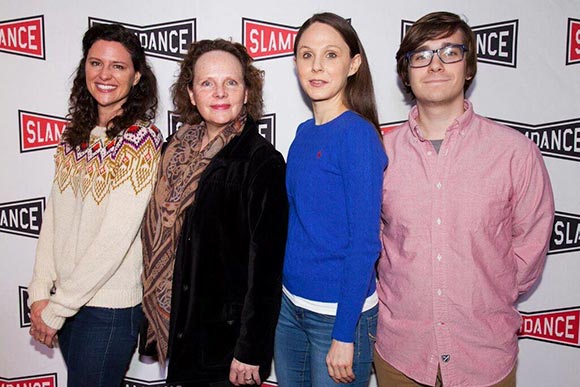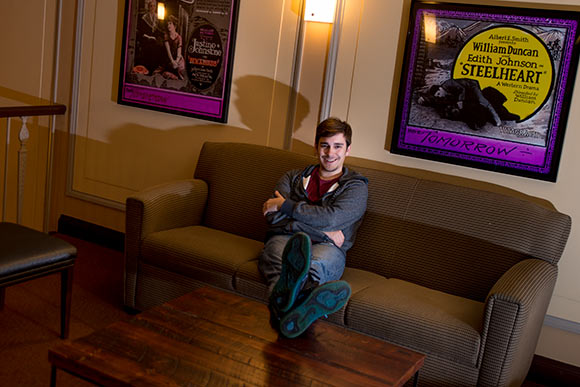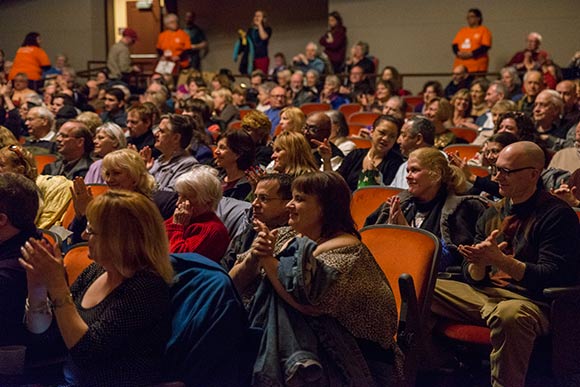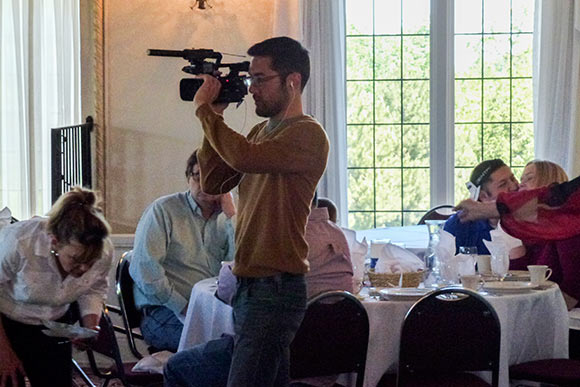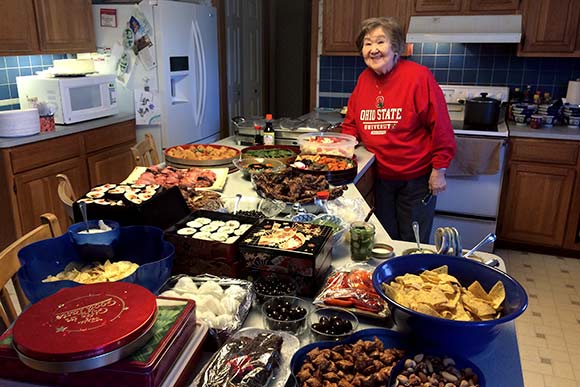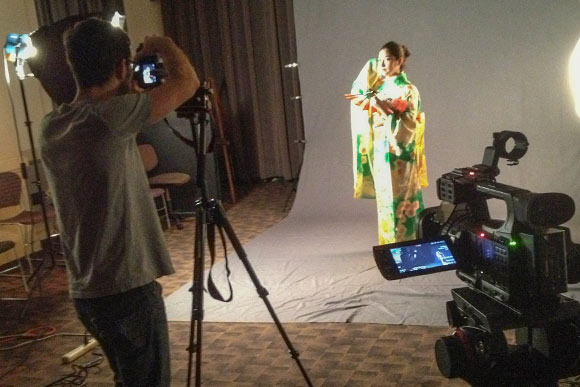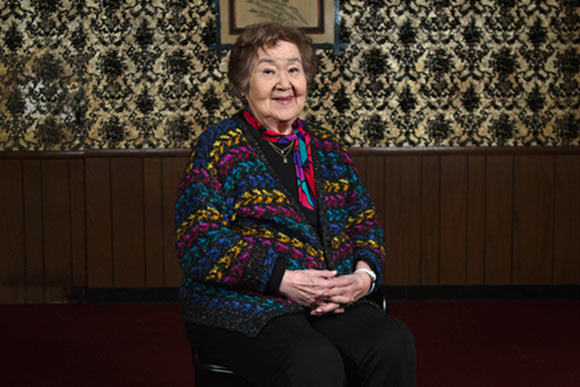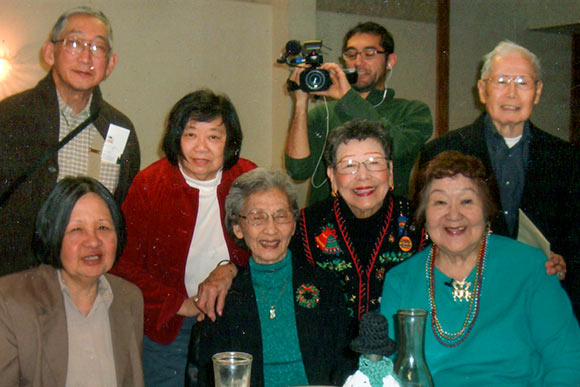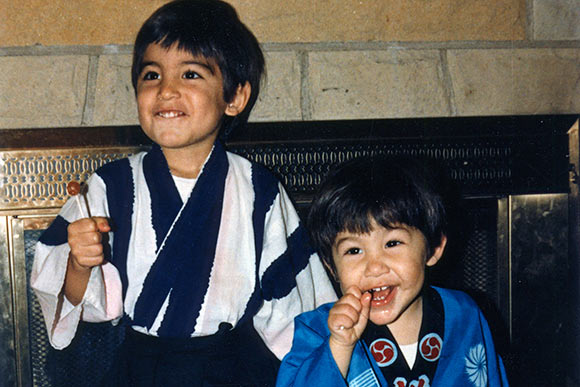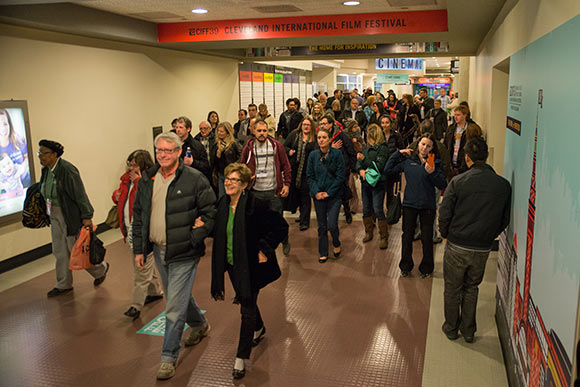Welcome Home: Cleveland International Film Festival shines a spotlight on local stories
SHORT STUFF
This year at CIFF, three Ohio Shorts sessions shine the light on local talent. Fresh water checked in with the filmmakers behind four of the featured presentations.
Goodbye, Ohio
Michael Wendt, director
Wednesday, April 6, 9:40 p.m.
Between Michael Wendt’s year-round site gigs in the industry and his efforts with the festival, where he’s worked part-time for the last nine years, he’s among the many fueling Cleveland’s rising film economy. As a location scout and manager for films like My Blind Brother (also playing at CIFF), Dog Eat Dog and The Bronze, Wendt has to know every nook and cranny of Cleveland. So it may seem surprising that the plot of Goodbye, Ohio revolves around a young woman on the verge of moving to the Big Apple, but not without the possibility of a special someone tethering her to the Buckeye State.
When screenwriter-producer-actress Jessy Leigh brought the script to Wendt, he was hesitant. More accustomed to working on documentaries and comedies, he worried about doing justice to a romantic drama. His versatility won out.
“As I read the script over and over, I really started to care for both characters in this story,” he says. “I definitely had to go out of my comfort zone.”
Cart
Tiffany Laufer, director
Thursday, April 7, 9:35 p.m.
Tiffany Laufer has played many roles, both on and off the screen. She’s directed actors such as Fred Armisen of Saturday Night Live, Dave Hill of The Dave Hill Explosion and Jack Hourigan of Food Network. The American Film Institute-trained director and actress has also shot stills for The Bronze, The Tank and Jenny’s Wedding.
Laufer’s own original work has stirred quite a buzz as well. Her feature script Emily and the Blue Heron was a semi-finalist with the Sundance writer's lab program and her short The Acorn Penny was picked up by ShortsHD. Another short, Honor Society, was picked up by ShortsTV for television release in the United States.
While her previous shorts were more serious, she was ready to try something new when she developed Cart.
“For this short film I wanted to laugh, have fun and to push myself as an actress,” she says.
The story about a godmother comforting a young woman reeling from the turmoil of love lost involves fox masks and a bit of fairy tale. Laufer says she hopes the audience walks away from the theater with the feeling that, “laughter mixed with a touch of hope in the unknown can cure all broken hearts.”
Fun fact: Laufer also served as cinematographer for Goodbye, Ohio.
Draw Hard
TurnStyle Films/Jon Nix, director
Wednesday, April 6, 9:40 p.m.
The prolific illustrations of John Greiner – best known as John G. – have become iconic staples of Cleveland art. From his advertisement for the popular grilled cheese-slinging chain Melt Bar and Grilled to concert fliers and his Lake Erie Monster comic book series with Jake Kelly, Greiner’s gritty drawing have become instantly recognizable. But how many know the man behind it all?
It was a story that begged to be told, according to production company TurnStyle Films, which has churned out stunning, high octane and sometimes mind-warping music videos for local and national musicians since its 2010 inception.
“I had known about John G's work for a while because it's everywhere in Cleveland,” says director Jon Nix. “Once I finally met him, I felt like people needed to hear his story and put a face to a name.”
Draw Hard winds its way through Greiner’s early works to his most recognized achievements. It also delves deeper into a BMX accident Greiner experienced at a young age that continues to influence his work.
“We hope the audience takes away inspiration from our film and the feeling that no matter what obstacles you face, always keep going forward,” Nix says.
From The Ground Up: Grassroots Against Cancer
Damien Campbell and Danielle Miller, directors
Wednesday, April 6, 9:40 p.m.
By now, many Clevelanders have seen photos or experienced first-hand the gorgeous, sprawling Prayers from Maria sunflower field in Avon. Its namesake foundation honors Maria McNamara, who passed away from brain cancer in 2007 at age 7. From The Ground Up filmmakers Damien Campbell and Danielle Miller’s document the organization’s grassroot effort to raise awareness for childhood glioma, a cancer with a one percent survival rate.
The directorial team considers this year’s CIFF theme of “Coming Home” serendipitous. Those involved with Maria's story and the film including Campbell, Prayers from Maria, Think Media Studios and a team of researchers from CWRU's Case Comprehensive Care Center, are all local.
“[They’re] all working in Cleveland to find a cure,” Campbell says. “Not only in pediatric glioma brain tumors, but any type of targeted therapy like chemotherapy. All of these great things are coming together from people born here or working here. We get to show it off for the first time to our home, our family.”
Campbell and Miller hope From the Ground Up gets others to think about ways they can get involved with causes that are close to them, even by way of non-traditional, grassroots routes.
From the neighborhoods we’ve lived in to the twisted roots of family trees, few things impact the shape of our lives as profoundly as the places we come from.
With a nod to that assertion, the Cleveland International Film Festival returns to Tower City from March 30 to April 10 with the theme “Welcome Home.”
In its 40th year, the festival has brought films that share visions of artists from around the globe to Cleveland. Some are documentaries unearthing the inner workings of towns where we may never step foot and others are avant-garde works that transport us to an otherworldly realm. Many show us new sides of our own city. Subject matter notwithstanding, in each film the audience is carried away by a flickering screen.
In keeping with this year’s theme, the festival continues to champion local filmmakers and regional stories. Their Local Heroes competition and three shorts programs shine a light on dozens of films with Ohio roots, and for this week's Fresh Water, contributor Nikki Delamotte takes a closer look at two of the feature-length offerings.

Mad
Robert Putka, director
Wednesday, April 6, 5 p.m.
Thursday, April 7, 9:10 p.m.
Neighborhood screening at Capitol Theatre Saturday, April 9, 12:30 p.m.
“Complicated” is the word Robert Putka uses to describe his relationship with his mother. In 2012, the 22-year-old Brecksville-Broadview Heights High School graduate began writing the screenplay about their emotional roller coaster that would become Mad. Three years later, the film premiered at the 2015 Slamdance.
Mad follows two sisters as they deal with the complexities of their ties to their mother, who’s in the midst of a nervous breakdown. The two daughters, Putka says, represent the duality of his own personality. He considers it a form of therapy.
“One daughter is an incredibly caustic, nasty woman who can’t stand her mother because she feels wounded,” says Putka. “The other daughter is a little nicer, a little more wide-eyed and empathetic.”
This doesn’t sound like the time for jokes, but Putka, who cites Judd Apatow as one of his key influences, mines the dark elements of home life with a sharp comedic edge.
“I love writing one-liners and I love comedy,” he says. “I look at things many people would see as brutal or dark and I see this inherit absurdity and I want to exploit that. To me, humor and drama go hand in hand.”
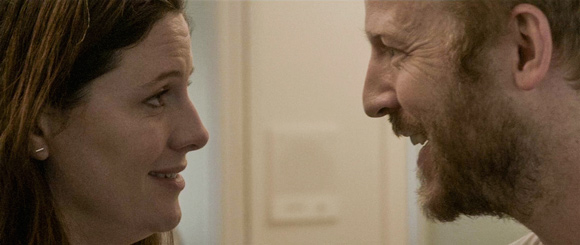 A scene from Mad, directed by Robert Putka
A scene from Mad, directed by Robert Putka
That appreciation for duality is part of why developing complex characters the audience simultaneously applaud and abhor is Putka’s forte.
“I think every human being is justified in feeling a certain way,” says Putka. “There’s always a reason behind the awfulness, or people who are hard to swallow. A lot of times it’s simply because they were hurt. I think there’s always some foundation or backstory. You have to have both sides and I always try to present that.”
Mad was shot over 18 days in Avon, Brunswick, Westlake, and Conneaut. But in discussions with industry workers, Putka’s beginning to see a swelling interest in Midwest regions such as Northeast Ohio.
“People are getting tired of seeing only New York and Los Angeles," says Putka. "There’s a whole different set of stories to be told.”
Next, he’ll be searching for funding for a feature currently titled Bedfellows and developing a darkly comedic television series, Kate or ‘Kait!
“I know I’m going to continue to make films and I hope to do it locally,” he says. “I hope that engenders faith in me and people follow that lead and start making films on their own.”
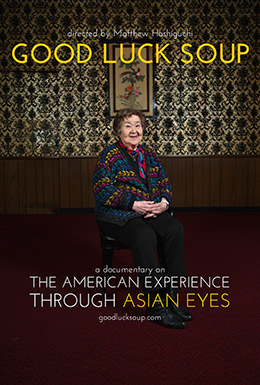
Good Luck Soup
Matthew Hashiguchi, director
Thursday, March 31, 7:30 p.m.
Saturday, April 2, 5 p.m.
Between 1942 and 1946, more than 110,000 Japanese Americans were placed in internment camps. After their release, many families, like that of Good Luck Soup director Matthew Hashiguchi, were left devastated and without homes. They scattered across the country and often landed in regions void of any links to their culture. Though the horrors of camps are well documented, the legacy of what became of post-war families remains largely untold.
Hashiguchi created Good Luck Soup, a documentary and multimedia interactive web platform, to tell the stories of Japanese Americans and Canadians before, during, and after World War II.
It’s not Hashiguchi’s first foray into documentaries. People Aren’t All Bad, his 2014 work examining the peculiar, compassionate relationship between an internment camp detainee and a gun tower guard, screened at Cannes Film Festival and was a Smithsonian Magazine In Motion video contest finalist. He also captured the resiliency of neighborhoods rebuilding their community after Hurricane Katrina in 2013’s The Lower 9: A Story of Home.
Though Good Luck Soup is a national project, he started with his own bloodline in Cleveland. As a young Gesu Elementary School student in an Irish Catholic neighborhood, the name-calling Hashiguchi heard on a daily basis growing up never left him. He also carries his grandmother's stories of the internment camps.
“I think the Midwestern experience for Japanese Americans – and really any Asian Americans – can be a bit awkward because you’re kind of out of place,” says Hashiguchi. “I’ve lived on the east coast and there are more Asians there. They have a community there; I saw more acceptance and understanding. I think the Midwest has somewhat struggled in accepting other cultures.”
In 2012, Hashiguchi began filming his grandmother. Scenes capture her current involvement with the Japanese American community in Cleveland, including a particularly moving speech she presented at the Mayfield Women's Club about her time in the camp.
“When Japanese-Americans came to Ohio, specifically Cleveland, there wasn’t really a place for them to fit into,” says Hashiguchi. “This was right after World War II, so they were perceived as the enemy. I think that mindset, that they’re different, has been passed down. So I think the more recent generations of Japanese Americans and Asian Americans are still feeling that mindset that they’re not American and out of place.”
He and a team of digital collaborators launched an interactive branch of his project that will be a part of the festival’s “Perspectives” program. For it, he’s both sought out and welcomed submissions from Japanese Americans who want to tell their story.
“I wanted to create a space that preserves the memory and the experience and the identity, and to really give younger people like myself something to connect with if they don’t have that,” says Hashiguchi. “I’m hoping with the website, other Japanese Americans can look at this and say, 'I have these experiences too.' Many of these people may not have a community, just like I didn’t.”
That disconnect had profound implications.
“For a long time I didn’t want to be Japanese,” says Hashiguchi. “This is a way of embracing my roots and saying, we all went through these things, we were all called these names and experienced these things, but it’s not going to make me turn my back on my heritage.”
Fresh Water Cleveland is a media partner for Mad. Use the discount code "Fresh" when purchasing tickets to Mad or any CIFF event and get a $2 price reduction.
